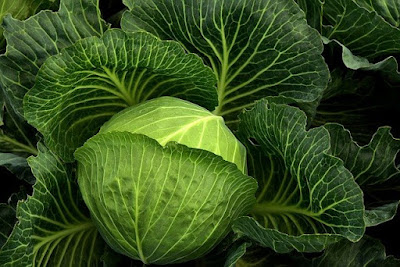Cabbage Facts - Important Information That You Need to Know
For those interested in cabbage, you may want to find out a few cabbage facts. Cabbage is one of the world's most popular vegetables. It is served at home, in sandwiches, stews, soups, and many more dishes. While the use of cabbage is widespread, there are some myths about cabbage that you should know before using it in your recipes.
One
of the first cabbage facts you should know is that cabbages are actually a
family of plants called the cabbage family. You may have heard the term
"head cabbage" which refers to the long, thin stalks used in cabbage
soups. Other cabbages are long, leafy green plants with flowers and leaves that
grow in clumps. The cabbage family has nine accepted plant families including
leek, carrot, brussel sprout, sweetcorn, kale, kamut, Muscadine, and more. All
cabbages fall into one of these families except for wheatgrass which is
considered an independent plant.
Another
cabbage facts you should know is that cabbage is related to cabbage plants and
the cabbage family also includes Brussels sprouts. Cabbage and Brussels sprouts
share many of the same characteristics including being edible, low calorie, and
containing carbohydrates. However, there are key differences between cabbage
and sprouts. Cabbage is often eaten raw while sprouts are used in a variety of
preparations including juice, soup, and salad dressings. As you can see,
cabbage is most commonly eaten raw while sprouts are more often used in a
prepared form.
Among
the other cabbage facts you should know is that cabbage is one of the world's
oldest vegetables growing in gardens dating back to the 7th century. Its roots
make it ideal for people who like to grow their own vegetables but are unable
to do so because of space issues in their homes. Also, cabbage's unique
structure makes it one of the most difficult vegetables to harvest and
maintain. However, because of its popularity, modern technology has been
employed to help cabbage grow even better.
One
of the most important cabbage facts you need to know is that it is usually
combined with other ingredients to make food such as egg rolls. Egg rolls are
simple flatbreads made by mixing ground meat (usually turkey or chicken) along
with cabbage leaves and spices such as scallions and garlic before baking in a
hot oven. The resulting food facts include a crispy golden brown patty that's
best enjoyed with your morning coffee. You might be surprised to learn that egg
rolls are not only eaten as breakfast food but also for sandwiches throughout
the day. This makes cabbage one of the best all around vegetables.
One
of the most popular foods from cabbage family is called pickled cabbage. It can
either be eaten raw or pickled before it is prepared for consumption. Cabbage
pickles are usually prepared by straining the cabbage juice to remove all the
solid particles inside it. A vinegar solution is used to further purify it and
make it more palatable for human consumption. Pickled cabbage is a very popular
ingredient in gourmet cooking nowadays.
Another
of cabbage facts is that cabbage contains a significant amount of Vitamin A.
This nutrient helps make the skin of cabbage resistant to dryness and chaffing.
This also explains why whole Heads cabbage is so popular among old folks:
because it helps protect them from getting sun-burned. Other than Vitamin A,
cabbage is also rich in other essential vitamins and minerals such as
potassium, iron, phosphorous, copper, magnesium, manganese and vitamins B, C, D
and E. These nutrients make cabbage an excellent food source, especially for
pregnant women, children and adults. You can find it in any supermarket in the
leafy vegetable section.
There
are a lot more cabbage facts floating around out there. Some say that cabbage
contains three times more beta carotene than carrots; that red cabbage contains
almost twice the amount of beta carotene as broccoli; and that cabbage contains
three times more vitamin c than oranges. All these cabbages are healthy, tasty,
nutritious and delicious. Try them at home or find a good gourmet recipe to
make them at home. No wonder these cabbages have been at the center of so many
health, nutritional and culinary controversies for centuries now.
Suggested Articles :
